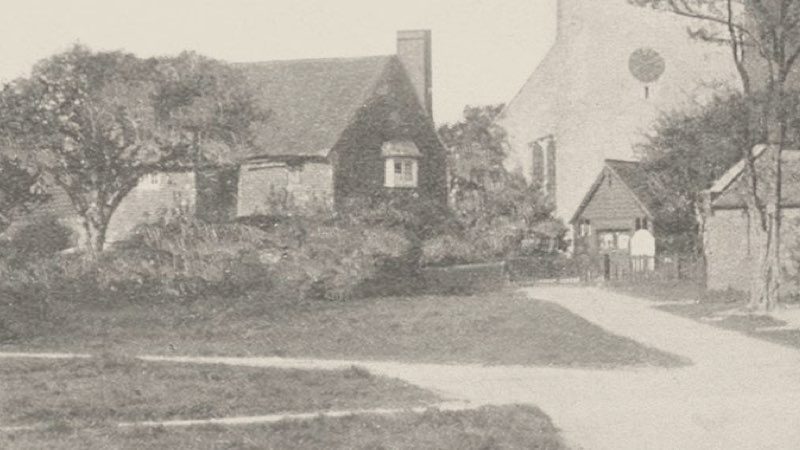
The Life And Ministry Of Jonathan Dyson
Gospel Standard 1870:
Death. On Nov. 15th, 1869, aged 53, Jonathan Dyson, deacon of the church at Siddall Hall.
From conversation that I have had with him at various times, I believe he was called by grace when he was about 25 years of age; up to which time he neither knew nor cared to know God, his ways, or his people; but when the arrows of the Almighty entered into his conscience, he was made to tremble. One night, in the midst of his soul trouble, he got up in the dead of the night, and walked about the fields in the neighbourhood where he then lived. He saw a light in a barn or cow-house, and made to the place. The farmer was a gracious man. When he saw poor Jonathan come in, he said, “What is the matter with you?” Jonathan said, “I am miserable, and know not what to do, or where to go; for I am afraid I shall go to hell.” The farmer was waiting for one of his cows calving that night, and asked Jonathan to stay with him for a time. He then said to Jonathan, “It is the work of God in your soul that is the cause of all this trouble,” and he endeavoured to comfort him.
After this, Jonathan began to go to the Baptist chapel at Golcar, and ultimately joined that church in 1844. He was baptized by a Mr. Green, the pastor of the church at Golcar, of whom I have heard him often speak very highly. He was not delivered from under the law by Mr. Green’s ministry, but he was delivered from it under a sermon by some other person, whose name I do not now remember; but the man was preaching from Ps. 55:22.
Some years after he joined that church, Mr. Green left the place, and removed to a distance, when another pastor was appointed, with whom Jonathan could not get along so well in the ministry of the work; nor did he ever settle down again agreeably, either under this man’s ministry, or that of any other who followed him at Golcar; but, after the room was opened at Siddall Hall, he began to go there a distance of seven or eight miles; and, no matter what kind of weather, we found Jonathan to be the first at the chapel. I can truly say that his religion was not of the kind that only comes out to chapel when the weather is fine. O, no; for he would be there when the hills were covered with snow, having to walk all the way alone; yet, “not alone.”
In 1861, he joined the church at Siddall Hall, from which time I do not ever remember his being absent up to the time of his affliction, by which he was laid aside nine or ten months ago. Previously to this he had for the most part enjoyed good health; but he was suddenly seized with a pain which the doctor said was gout in the stomach; however, it soon settled down into his left leg, which he was never again able to move. He was a great sufferer in his affliction, so much so that people have wondered how he could exist at all.
When under the influence of the old man of sin, he was of a sour and bad temper, and could scarcely ever be at peace with any one, either at home or abroad. But he was no hypocrite. He would tell his mind, fearless of consequences, either as a man of business or a professor of religion. But when he was under the influence of the new man of grace, he was one of the most meek and, perhaps, the most humble of men that ever I knew. In this respect poor Jonathan showed two very great extremes. In one extreme, he would appear to be like a rock for hardness, and as cold as an iceberg; at the other extreme, he would be as soft and tender as an affectionate parent.
He was a true believer in the doctrines of grace; and, though an illiterate man, he could distinguish accurately between the letter and the spirit of the gospel, and between truth and error in doctrine, experience, and practice.
On his bed of affliction, he generally seemed to be much reconciled, but at times would express a wish to recover, if it were the Lord’s will. He said at one time, “If I knew that I had only twelve minutes to live, I should be glad if eleven of them were gone.” He had not much light in his afflictions, nor much joy; but he said to me, on asking him how he felt, “I shall land safely, and meet you in heaven:
‘Freed from a world of toil and sin,
Eternally with God shut in.'”
For some time before his death, his conversation became more savoury, and he spoke more freely of his departure, with great solemnity and feeling.
With all Jonathan’s singularity and obstinacy, I never doubted the sincerity of his religion, nor do I doubt his safety in heaven.
David Smith
Jonathan Dyson (1816-1869) was a Strict and Particular Baptist believer. He served as deacon for the church meeting at Siddall Hall.



